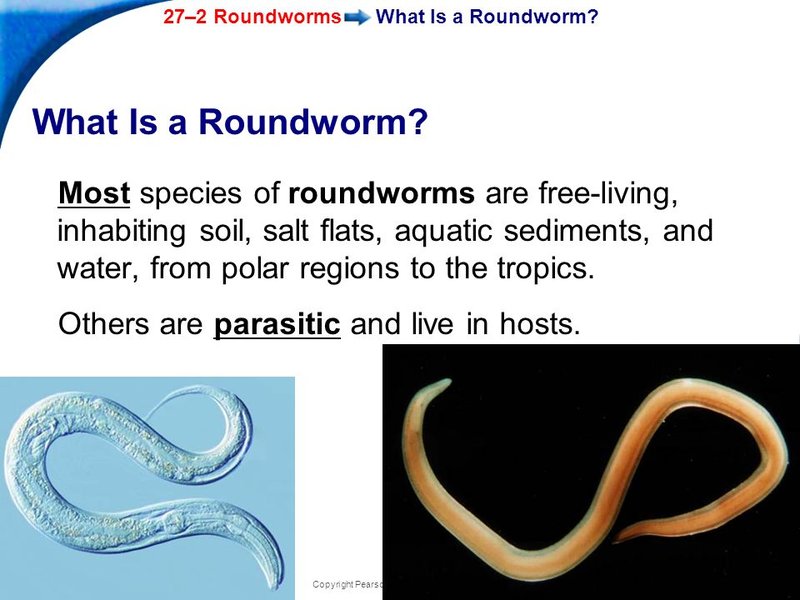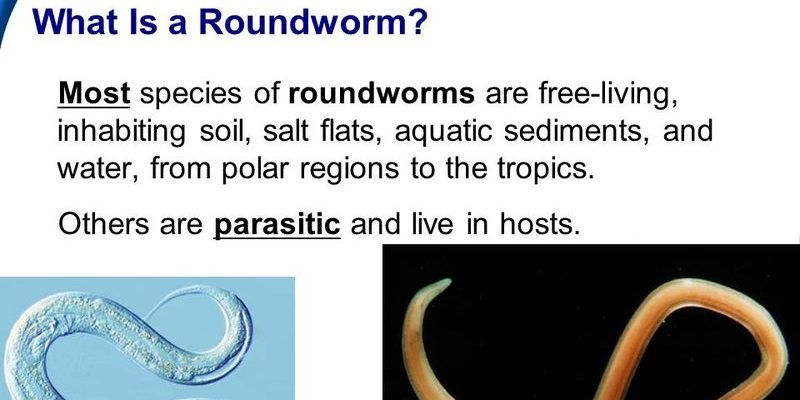
Roundworms, or nematodes as they’re scientifically known, are incredibly diverse. They can be found in nearly every habitat on Earth, from your garden soil to the depths of the ocean. These tiny worms are not just passive residents; they actively participate in nutrient cycling, soil health, and even pest control. Let’s dive into the fascinating world of roundworms and see how they contribute to our ecosystems.
What Are Roundworms?
Roundworms belong to the phylum Nematoda, and they come in many shapes and sizes. They can be as small as a grain of sand or spacious enough to be visible to the naked eye. Most people might picture them as pesky parasites that can infect plants or animals, and while that’s true for some species, the majority of roundworms are actually beneficial.
You might be wondering, how do these creatures survive? They thrive in moist environments and consume organic matter, bacteria, and other microbes. They play crucial roles in breaking down decaying materials, which returns nutrients to the soil and aquatic systems—a bit like a chef preparing ingredients for a delicious meal.
The Role of Roundworms in Soil Ecosystems
In the soil ecosystem, roundworms are a cornerstone. They help decompose organic matter, such as dead plants and animals. By doing this, they release vital nutrients back into the soil, making them available for plants to use. This nutrient cycling is essential for maintaining healthy soil, which is the foundation of terrestrial life.
But that’s not all! Roundworms also regulate populations of bacteria and fungi in the soil. By feeding on these microorganisms, they help prevent any one species from becoming too dominant, promoting biodiversity. Imagine a bustling city where everyone has a role to play—roundworms ensure that no single group overwhelms the others.
Furthermore, they contribute to the soil structure, which improves aeration and water retention. This means healthier plants and ultimately a more robust food supply for us all. So, the next time you dig in the garden, remember these tiny helpers are working hard beneath the surface!
Roundworms in Aquatic Ecosystems
Roundworms are equally important in aquatic ecosystems. Living in the water, they often serve as food for a variety of organisms, including fish and aquatic insects. Their presence indicates a healthy ecosystem, much like the way a butterfly can signal a thriving garden.
In water bodies, roundworms also play a role in nutrient cycling, just like they do in soil. They help break down organic material, promoting the growth of algae and other aquatic plants. This process creates a balanced food web, where nutrients flow smoothly between various organisms.
You might be surprised to learn that some species of roundworms are quite sensitive to pollution. Because of this, scientists often use them as indicators of water quality. If roundworm populations are low or absent, it might signal problems in the aquatic environment, prompting further investigation.
The Impact on Agriculture
Roundworms can have a direct impact on agriculture. Beneficial nematodes are often used as biological control agents against pests. For instance, some types of roundworms prey on harmful insects that threaten crops. This natural pest control reduces the need for chemical pesticides, benefiting both farmers and the environment.
However, not all roundworms are friends to farmers. Some species can be detrimental, causing diseases in plants and crops. Understanding the balance between beneficial and harmful roundworms is crucial for sustainable farming practices. Farmers often monitor roundworm populations in their fields to manage pests while fostering healthy soil ecosystems.
Roundworms and Soil Health
Healthy soil is vital for vibrant plant life, and roundworms contribute significantly to this health. They help maintain soil structure, enhance nutrient availability, and promote microbial diversity. Think of them as tiny engineers working tirelessly to keep the ecosystem balanced.
You might be wondering how to encourage roundworms in your garden or farm. One effective way is to practice organic farming. This approach focuses on reducing synthetic chemicals and enhancing soil fertility through natural methods. Adding organic matter, like compost, not only feeds plants but also nourishes roundworm populations.
Cover crops can also support roundworm health. By planting specific crops that enhance soil organic content during the off-season, you create a supportive habitat for these beneficial creatures.
Challenges Facing Roundworms
Despite their benefits, roundworms face various challenges. Pollution, habitat destruction, and climate change can severely impact their populations. Pesticides and fertilizers might kill beneficial nematodes, disrupting the balance they maintain in both soil and aquatic ecosystems.
You might be asking yourself why this matters. Well, without roundworms, ecosystems become imbalanced. Soil health declines, water quality worsens, and crops suffer. Maintaining a healthy environment for roundworms ultimately ensures the overall health of our ecosystems.
Roundworms might not be the most glamorous creatures, but they are vital players in the intricate web of life. From enhancing soil health to supporting aquatic ecosystems, their contributions are profound. So, the next time you think about nature, take a moment to appreciate these tiny organisms working tirelessly behind the scenes. They remind us that even the smallest players can have a huge impact on the health of our planet. By understanding and protecting roundworms, we can help sustain the delicate balance of our ecosystems for generations to come.

